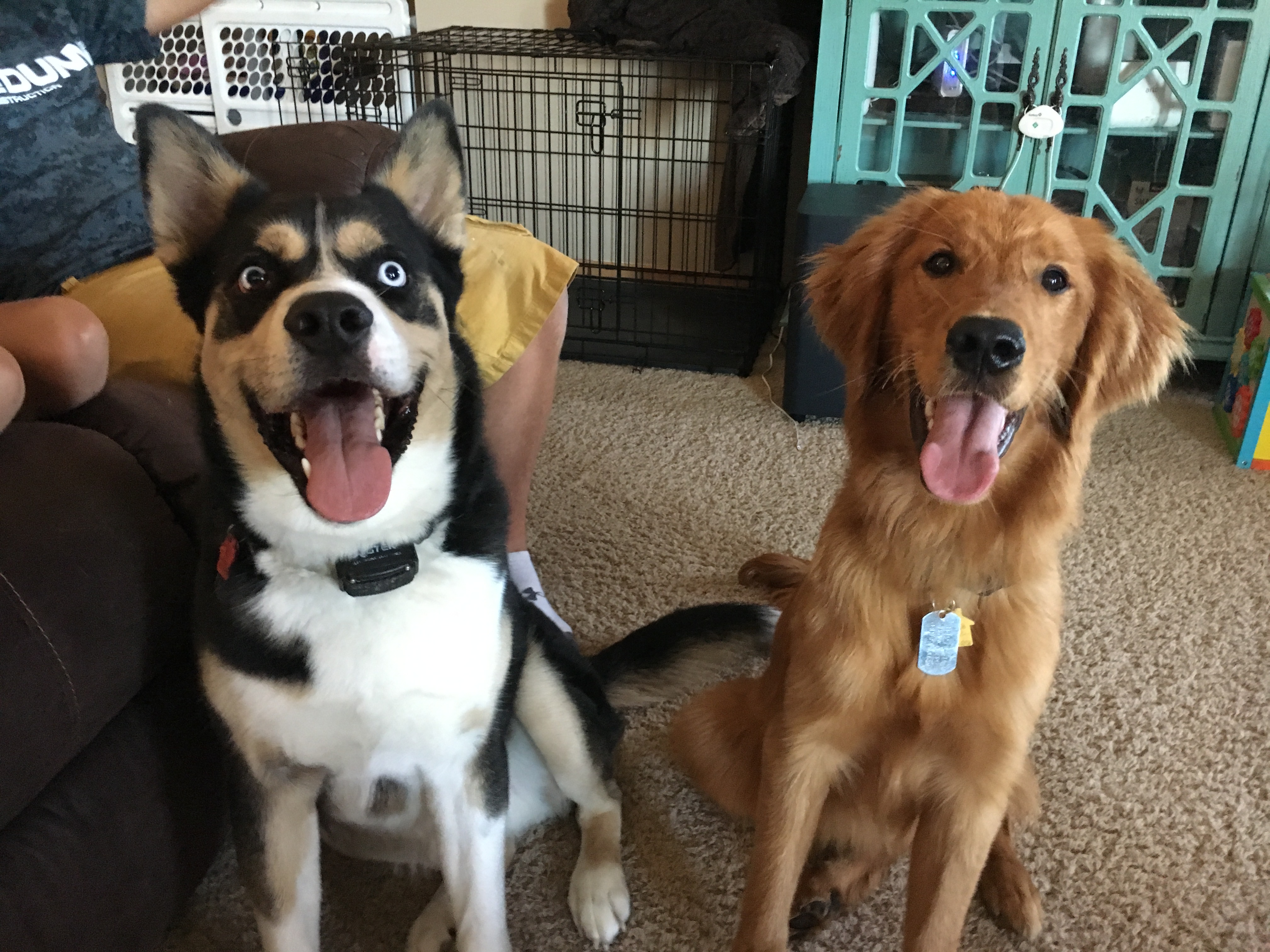Helping a Fearful Husky Mix Get Over its Fear of Strangers
By: David Codr
Published Date: July 16, 2018
For this Omaha dog training session we worked with 8 month-old Golden Retriever puppy Max and his room mate, 3 year-old Husky mix Maui who is fearful and reactive to people he doesn’t know.
Max is in our puppy socialization class so we didn’t work with him much in this session. I did show the guardians how to stop him from being over excited and jumping up when guests arrive.
Since the family has a home based business where clients drop by regularly, this is a great exercise to practice. The guardians may want to share the link to that exercise with the clients ahead of time so they can help Max practice sitting calming when guests arrive.
The family won a free dog training lesson prior to this session and Maui spent the entire time barking at the trainer who tried to win him over by tossing treats at him.
While I like the trainer’s positive approach, its a great illustration of the difference between a behaviorist and and dog trainer. Trainers work on conditioning an namely by luring them into an action or position then rewarding them for doing so.
As a Dog Behaviorist, I look for the underlying cause of a dog’s behavior and then create situations where the dog is comfortable and can discover a new behavior on their own. We stack the deck so that the odds are the dog goes the way we want them to, but we set things up so the dog comes to this conclusion on their own.
In order to work on the underlying issue with Maui, I first needed to ear his trust. I took him for a walk and used a few dog behaviorist tricks that helped him start to trust me. But its probably more important to detail what I didn’t do; no petting, no talking, no eye contact and working with him in a more open environment to start.
Many people think petting a dog is the best way to earn their trust, but if a dog doesn’t trust you or finds you creepy, petting or engaging it will usually just make matters worse.
When we got back from the walk, Maui sat down next to me and was much more relaxed. However he was not completely relaxed so I continued to work to build his trust.
One of the things I noticed was that Maui was reactive to direct eye contact. This is not unusual as direct eye contact can be interpreted as a challenge. To help Maui start to feel better about getting eye contact, I did a version of a focus exercise.
Id like the guardians to practice this focus exercise a few times a day so they can get to the 15-20 second delay by the end of the week. Once Maui has enough practice, guests can use this exercise to help him see eye contact from strangers as a positive.
Next I asked the family questions about the dog’s behavior, what rules and structure was in place as well as how the dogs got exercise. What I learned was that the dogs had few rules, were under exercised and could tell the humans what to do, to some extent.
Im pretty sure Maui either thinks he is the leader of the family or he acts out when guests arrive to motivate them to leave. The family’s occasion tactic of putting him away when people visit likely only contributed to his behavior problem.
I showed the guardians how to incorporate rules and structure to help shift the leader follower dynamic and demote Maui from security dog to companion. I also showed them how they can pet him to reward desired behaviors (Passive training) and teach him to offer good behaviors by asking for a sit, or lay down before petting him (Petting with a purpose).
I also showed them how to add structure to recurring daily tasks like waiting for the dog to sit and calm down before letting it out of the kennel. If the family repeats this approach for the next few weeks, the dogs should start to calm down and sit when they see someone is getting ready to let them out of their kennel.
Next I handed my camera to the guardians to detail a few tricks to help Maui behave better when guests arrive. He barks and gets upset when guests arrive, acting out in an effort to get them to leave.
Frankly I wasn’t super happy with the video we shot. Although it has many great dog behavior tips, I was having kind of an off day. Here is a link to a similar approach I shared with another client that was more on point.
When you have a dog who is insecure and acts aggressive in new situations, building up its confidence is always a good plan. I recommended the guardians try to teach him a new trick or command a week for 8-12 weeks.
Another thing the guardians can do to help Maui be less reactive is have guests toss treats for him outside the house before coming inside. This is something that would be best done on a second visit or if the dog wont walk with the guest (more on that in the video below).
My hope is that as the humans flip the leader follower dynamic, Maui will feel less of a need to protect the home or start to see his humans are capable of being the leaders. This should decrease his stress levels and help him go back to being a dog.
If his behavior around guests continues a month after this session, we may need to set up a follow up session to do some Behavior Adjustment Training (BAT).
To help the humans remember all the dog behavior secrets I shared with them in this in home dog training session we shot a roadmap to success video.
Categorized in: Dog Psychology


